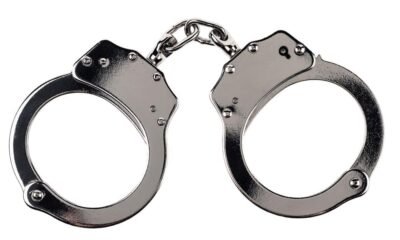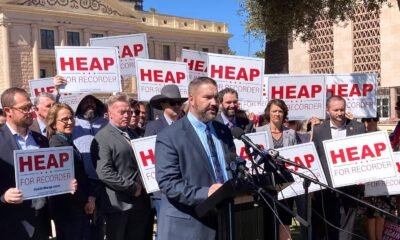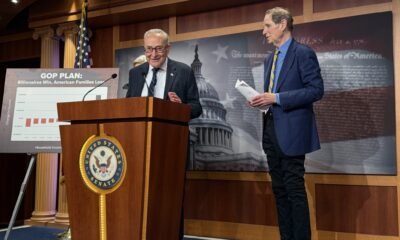2024 election
Ballot Prop Showdown: Winners and Losers Unveiled

by Jerod MacDonald-Evoy, Arizona Mirror
November 6, 2024
This year, Arizonans encountered an extensive ballot due to Republican lawmakers presenting numerous proposals directly to voters. This strategy aimed to circumvent the veto power of Democratic Gov. Katie Hobbs.
The citizen-led abortion rights initiative garnered significant attention, yet several other noteworthy measures were also on the ballot. Below is a summary of those initiatives that received less public focus.
Proposition 134
Initial results suggest that voters have rejected Proposition 134. This measure sought to alter the state constitution to complicate the process of citizen-led ballot initiatives. It proposed that citizens gather signatures amounting to 10% of the votes from the last gubernatorial election in each legislative district for statutory changes and 15% for constitutional amendments. Currently, signatures can be collected from across the entire state. Supporters argued it would enhance representation for rural voters, while opponents contended it could empower a single partisan district to thwart popular initiatives. By early Wednesday, more than 59% of voters had chosen to vote against the proposition.
Proposition 135
Proposition 135 also appears to have been defeated. This proposal aimed to modify the governor’s authority to declare emergencies, granting greater influence to state lawmakers regarding those declarations. This measure emerged partly in response to the COVID-19 pandemic, during which Republican Gov. Doug Ducey utilized emergency powers that faced opposition from many in his party. If approved, it would have permitted one-third of lawmakers to request a special session during emergencies, while also restricting the governor’s powers to 30 days unless extended by the legislature. More than 58% of voters opposed this measure as well.
Proposition 136
Arizona voters have rejected Proposition 136, which sought to permit individuals to challenge the legality of a ballot initiative before it was presented to the electorate. Should the initiative be deemed unconstitutional, it would have been excluded from the ballot. As of late Tuesday, over 63% of voters had declined this change.
Proposition 311
In contrast, Proposition 311 appears to have secured voter approval. This proposition would establish a $250,000 state death benefit for the families of first responders killed while on duty during criminal incidents. It would introduce a $20 fee per criminal conviction to fund the initiative and could be repealed by January 1, 2033. Additionally, it allows legislators to reallocate excess funds—beyond $2 million—toward police training and support for first responder families. Approximately 63% of voters supported this measure by early Wednesday.
Proposition 312
Preliminary reports indicate that voters have likely approved Proposition 312. This proposal mandates tax incentives for property owners who address issues related to unhoused individuals near their properties. Municipalities previously expressed concerns that this requirement could complicate their efforts to manage homelessness and potentially reduce city revenue. Early results show that over 57% of voters favored the measure.
Proposition 315
Voters appear to have turned down Proposition 315, which aimed to prevent new statewide rules proposed by state agencies from taking effect if they were estimated to cost more than $500,000 over five years. It would also have granted the legislature final approval authority over such rules. Critics argued that this measure would enable legislative meddling in state agency operations. More than 54% of voters rejected this proposition by early Wednesday.


















